I participated in a walk that I had no idea would leave such an impact on me. It was the most beautiful one mile walk I have ever walked, because it was a walk full of love and hope.
Love for all those who were walking for their loved ones who have suffered from eating disorders and for one another suffering from eating disorders, and hope to spread awareness of this mental illness and to end the stigma attached to eating disorders. From this amazing walk, I left with a few important messages for anyone suffering from eating disorders.
1. You are not alone

Photo by Jamie Carroll
You’re not the only one going through this. There are (unfortunately) millions of other people who are suffering from eating disorders and millions who are recovered and want to help you. You have people in your life who are there to help you through this.
2. You have a support team
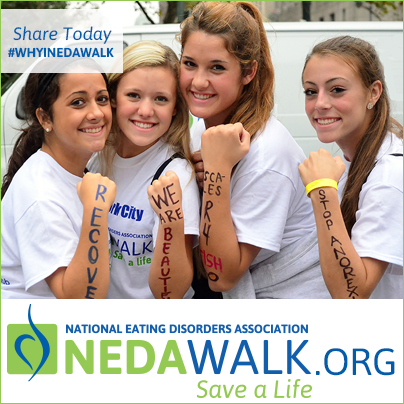
Photo courtesy of nedawalk.org
It is easy to feel like you are alone going through this process, but you’re not. Whether it’s your best friend, your parents, a professor, or a counselor, everyone has someone they can go to when they need help. Someone will always be there for you with open arms, ears, and hearts to help you get through this.
3. Listen to your body
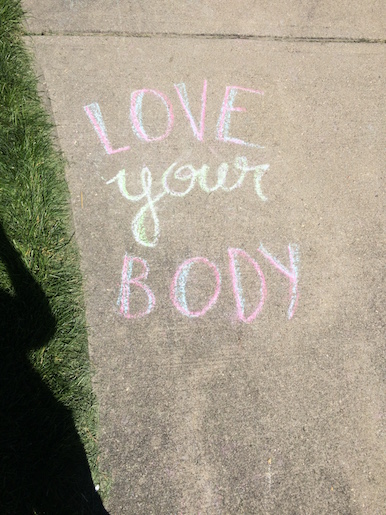
Photo by Jamie Carroll
Be able to tell when you’re getting hungry, and eat when you are. And be able to know when your body is full, indicating when you should stop eating. Eat what appeals to you. If you want that slice of pizza, eat that slice of pizza — no one is stopping you.
4. Recovery is possible
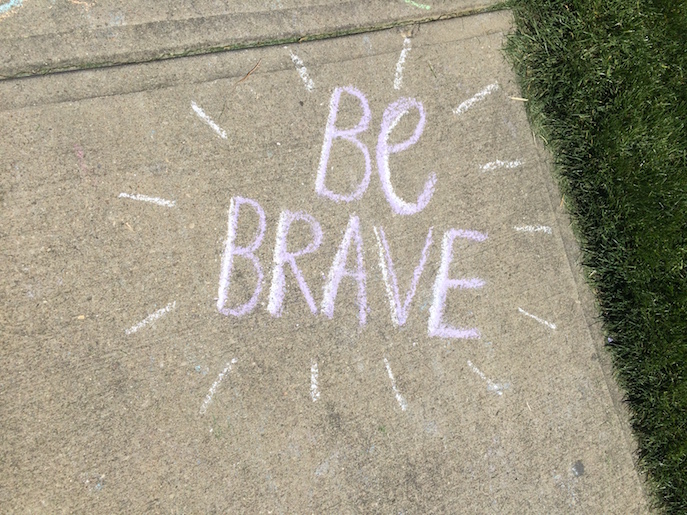
Photo by Jamie Carroll
Don’t give up because you can get help. Living with an eating disorder is a daily struggle, but you’re strong and you can overcome it. There is nothing greater and more rewarding than seeing someone (or yourself) become themselves again after recovery. Recovery isn’t always easy, but it’s worth it.
5. Scales are for fish
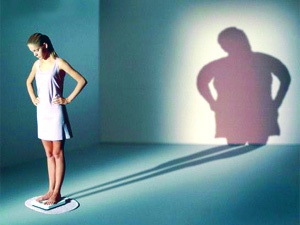
Photo courtesy of firststeprecovery.com
You are not defined by a number on a scale, nor should that number determine your overall happiness and/or happiness with your body. Don’t let a stupid number make or break your day and how you feel about yourself. The number on the scale does not measure your value and worth.
6. We’re all in this together

Photo courtesy of buzzfeed.com
Living with an eating disorder may cause you to feel isolated and hopeless. Just remember that you’re not the only one struggling with an eating disorder and be hopeful that you too can recover, as millions of others have.
7. There are other eating disorders in addition to anorexia and bulimia
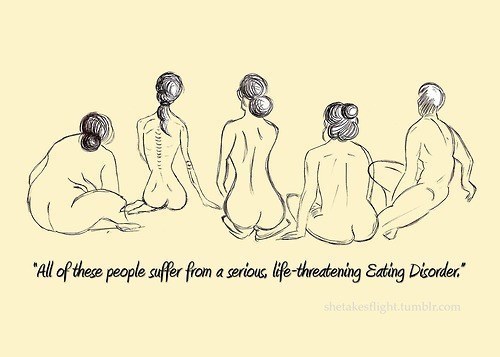
Photo courtesy of lipstickalley.com
The most commonly known eating disorders are anorexia nervosa (self-starvation and excessive weight loss) and bulimia nervosa (a cycle of bingeing and compensatory behaviors). However, binge eating disorder is also a common eating disorder, which includes recurring episodes of eating large amounts of food, feeling at a loss of control during the binge, and feeling guilty after the binge.
There is also Other Specified Feeding or Eating Disorder, which is a feeding or eating disorder that causes distress or impairment, but doesn’t meet the requirements of another feeding or eating disorder. An example of this is orthorexia nervosa – the terrible obsession with healthy eating. Here are a few other myths about eating disorders.
8. Life is worth it and you are worth it
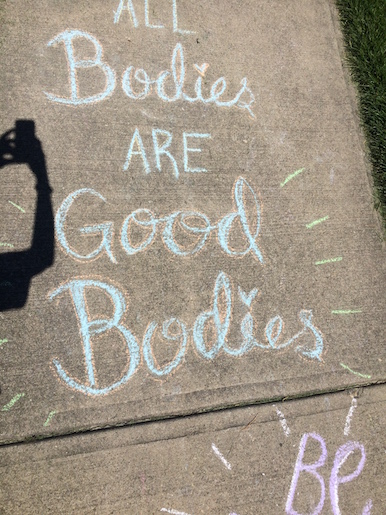
Photo by Jamie Carroll
Let your body be your friend. Love yourself and love your body. Only you are you, and you are beautiful!


